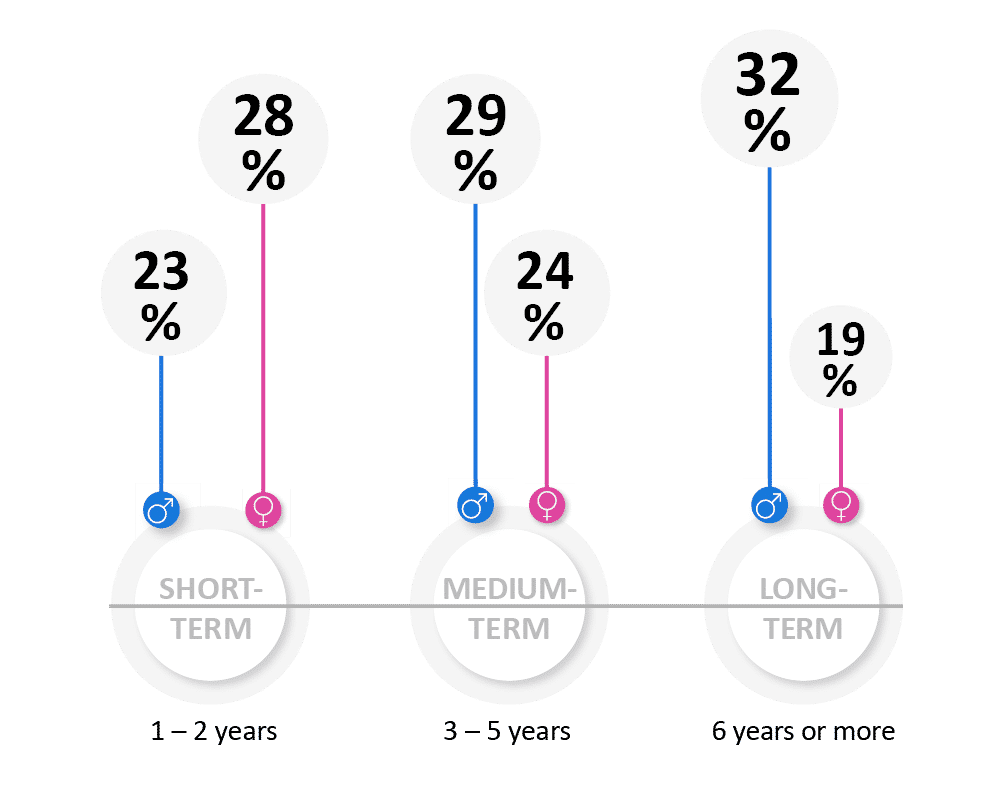Eternal life
WOULD YOU BE TRAPPED IN THE HAMSTER WHEEL OR IN ENDLESS HAPPINESS?
In search of eternal life. What may sound like the obscure goal of a James Bond villain has always been a virtuous wish of mankind. To break the chronological boundaries and expectations of human existence and to defy nature and its cycle of life. Would that be great? Or rather not? Do people really want to live for eternity and if so, under which conditions?
At Lanserhof, we cannot yet get to the bottom of the source of eternal life, but we can investigate whether people would be willing to live forever. What dream would people in Great Britain like to reach, what conditions would have to be clarified for them to live forever, how do they feel about their actual life expectancy and how far ahead do they plan. We asked all these questions in a representative Appinio survey of 1,000 people from Great Britain.
Great Britain wants to live forever –
Climate change is not a big fear factor

The evaluation of the question: Under what conditions would eternal life be interesting for you? (Multiple answers possible)
Desired age

The evaluation of the question: If you could live infinitely long, at what age would you like to be (e.g. live in the body of a 20-year-old)? With a focus on the gender of the respondents.
A divided Great Britain:
Desired age exceeds life expectancy

The current life expectancy is 78 years for men and 83 years for women. Is that enough for you? With a focus on the gender of the respondents.

The evaluation of the question: How old do you want to be?
If Great Britain could choose, current life expectancy would not be sufficient after all: The desired lifetime is 90 years for women and 92 years for men.
Looking ahead:
Men live in the future, women in the now

The evaluation of the question: How old do you want to be? With a focus on the relationship status of the respondents.
Current global problems show that what was thought to be safe has to be quickly overturned when circumstances demand it. Nevertheless, planning gives us security. The Appinio survey shows that people in Great Britain tend to look ahead in the short and medium term. The minority (19%) of respondents said they plan their lives over 6 years or even longer.
On the other hand, 32% prefer medium-term planning. The gender distribution is particularly interesting: men seem to be more likely to practice long-term planning. 28% of women said they do not plan their lives at all. In contrast, men can almost be described as long-term life planners: At 32%, around one in three men plan ahead for both the medium and long term (19%).
Are Brits working themselves to death? Great Britain self-critical
The question about reaching the age of one’s dreams yields some surprising results. With regard to their own lifestyle, the majority of respondents are confident that they will reach their dream age with their current lifestyle. 23%, on the other hand, stated that they tend not to be able to reach their desired age with their current lifestyle. Wouldn’t that be an incentive to change something? Unfortunately, it is easier to sit on the sofa, than go for a walk.

Do you think you will reach your dream age with your current lifestyle?
“The latest Lanserhof survey shows that Germans are more positive about life than is generally assumed. They know exactly that health is elementarily important for a happy life – but so are friendship and love. There is only one topic where we should broaden our perspective: each age gives specific happiness (and also specific worries). Therefore, we do not need to wish ourselves older or younger. What is more important is to make the best of every age.”
Dr. Florian Langenscheidt, bestselling author
The data was collected in March 2022 with the help of Appinio. A total of 1,000 people in Great Britain were interviewed for this representative survey. Six questions were asked, which were answered equally by 500 male and 500 female participants. The data was collected exclusively in Great Britain and is representative of the entire country. This data collection was compiled to the best of our knowledge and belief, but does not claim to be up-to-date or complete. It is not a scientific study.